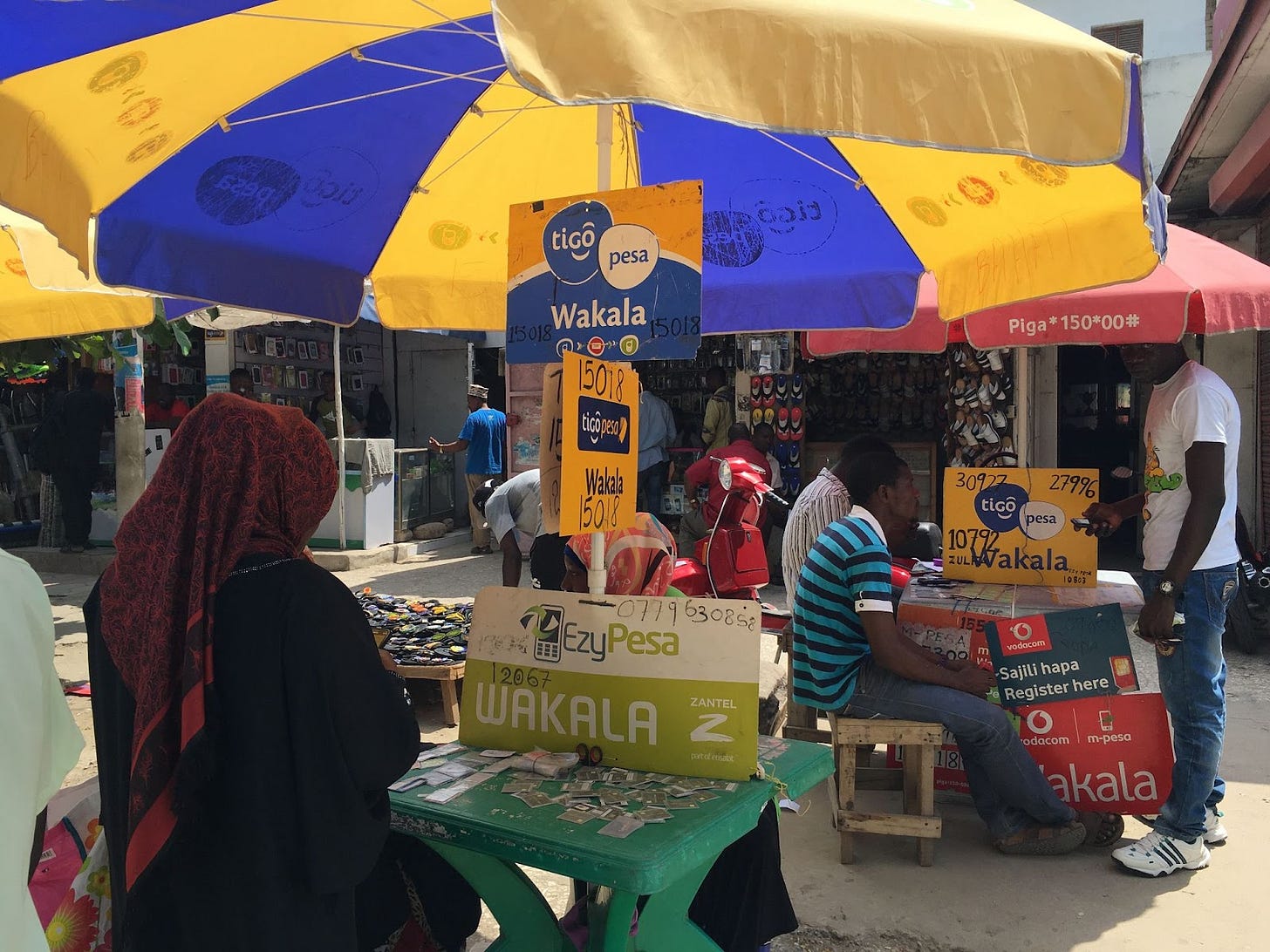🌯 Inclusive FinTech Knowledge Bites [Week #37]
The value of Agent-as-a-Service, how small agent-collections boost financial discipline, and whether new technologies will solve gig economy challenges
This week on The Barefoot Economist:
🕸️ Capturing the network opportunity value with Agent-as-a-service
💰 Small transactions at agents enhance financial discipline
🏍️ Gig Economy: New Technologies, Same Problems?
Enjoy your weekend reading!
Hugo Pacheco, The Barefoot Economist
🕸️ The networks of opportunities with Agent-as-a-service
The rapid expansion of mobile money agent networks in Sub-Saharan Africa is indeed creating transformative opportunities for both economic growth and financial inclusion. By addressing gaps in agent liquidity, providing complementary service offerings, and improving digital literacy, these networks can play a central role in driving financial inclusion across Africa. Leveraging these insights can help in creating more sustainable business models and improve the livelihoods of millions of agents and customers alike.
🧠 𝗞𝗲𝘆 𝘁𝗮𝗸𝗲𝗮𝘄𝗮𝘆𝘀
Role in Financial Inclusion: Agent networks are crucial for reaching the estimated 57% of Sub-Saharan Africa’s adult population that remains unbanked. These networks enable access to formal financial services, including savings, credit, and insurance, and foster greater trust in digital finance systems.
Increased Income for Agents: As highlighted, mobile money agents often depend on this work for their livelihoods. In Côte d'Ivoire, mobile money accounts for 80% of an agent's income. Diversifying revenue streams, such as e-commerce facilitation and bill payments, can further enhance income opportunities.
Support for Women: Women are under-represented as agents but hold enormous potential for growth. In fact, studies have shown that female customers are more likely to engage with female agents. This represents a valuable opportunity to target financial inclusion efforts towards women, who are disproportionately unbanked in Africa (with a gender gap of 9% in account ownership).
Revenue Growth Potential: Startups like Opareta and Avunja are tackling inefficiencies and liquidity management to increase agent profitability. In particular, Opareta's solutions raise agents' earnings by $0.30 per $1 in transaction fees, while Avunja focuses on empowering unemployed youth and women, demonstrating the social and economic impact of these models.
Projected Network Growth: With 4.3 million active agents today, the agent network in Sub-Saharan Africa is projected to grow to over 10 million within the next decade. This surge will significantly expand the reach of mobile money and digital financial services, especially in rural and underserved areas, facilitating deeper integration into the formal economy.
🌯 The Barefoot Insight
As the agent network in Sub-Saharan Africa continues to expand, providers and agents must focus on several critical factors to ensure the sustainability and success of emerging use cases. These factors, ranging from technical financial knowledge, sales soft skills to cost-benefit use case feasibility, will be instrumental in supporting the growth of digital financial services and maximising the potential of an increasingly connected agent ecosystem. By understanding and leveraging these key drivers, providers can empower agents to deliver more tailored, efficient, and impactful services, ultimately driving financial inclusion.
📈 Providers must diversify agent services across various use cases to ensure agent sustainability.





